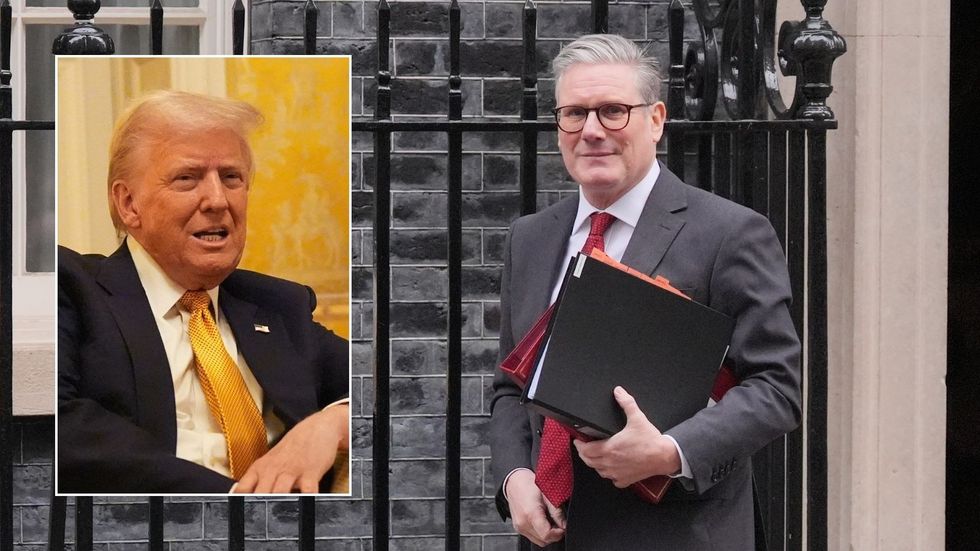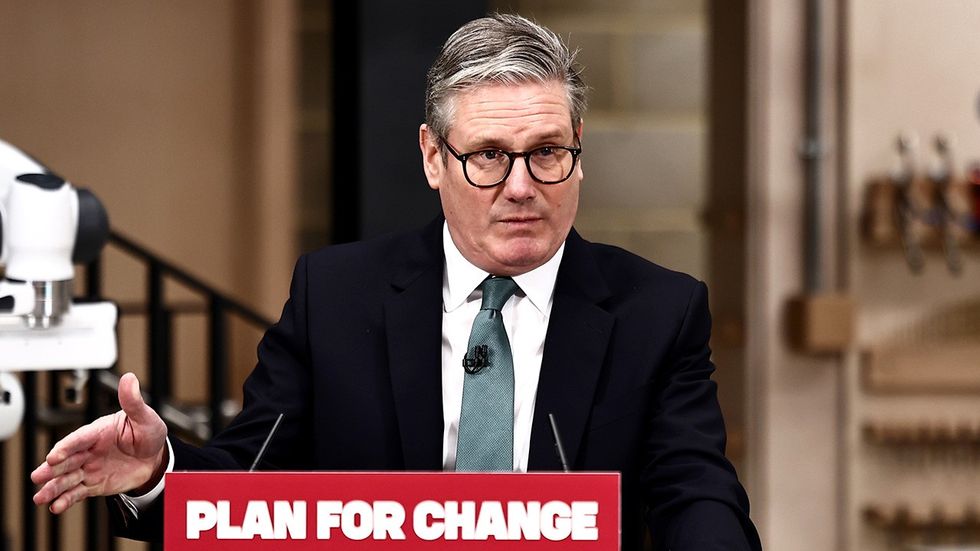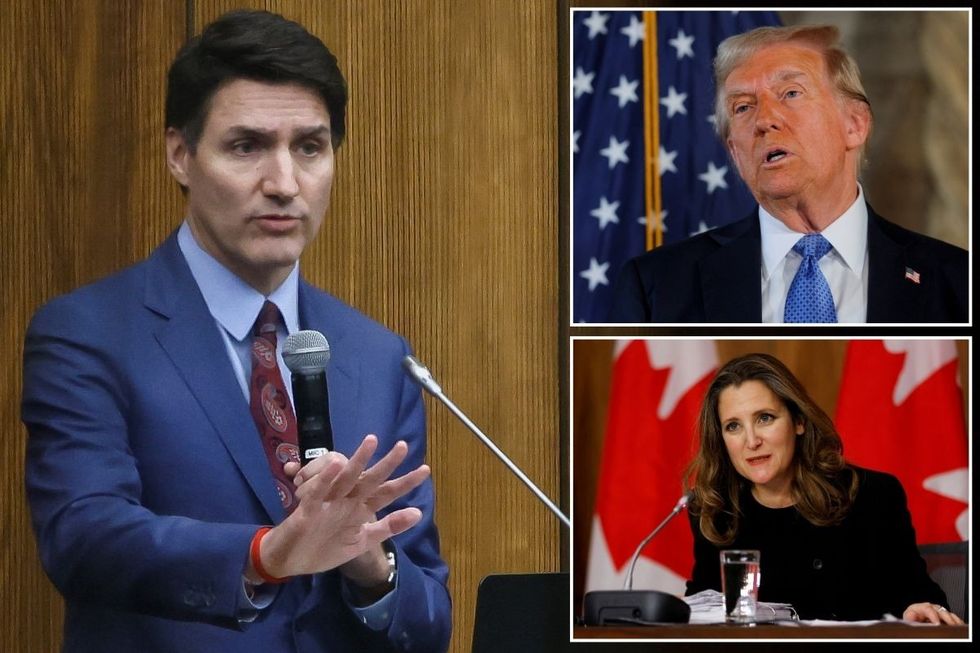Are Trump’s Tariffs a threat to the economy?
GB NEWS
Donald Trump is imposing tariffs on other countries imports with the UK being potentially in the firing line
Don't Miss
Most Read
Trending on GB News
Prime Minister Keir Starmer is wielding a statistical discrepancy to Britain's advantage as he moves to counter Donald Trump's tariff threats against trading partners, following the 25 per cent levy imposed on China and Mexico earlier today.
Starmer is highlighting American data that shows the US maintaining a trade surplus with the UK, making it one of few major economies to hold such a position.
US figures indicate America enjoyed a $14.5billion overall trade surplus with the UK in 2023, which stands in stark contrast to Britain's own Office for National Statistics (ONS) data, which reports the UK held a £71.4billion surplus with the US in the same period.
"Using America's own trade data provides a shared and strong foundation when engaging in discussions with our American friends," one senior British official told The Financial Times.
The difference in trade figures stems largely from how each nation treats Britain's Crown Dependencies in their calculations as the US Bureau of Economic Analysis includes trade with Jersey, Guernsey and the Isle of Man in UK data, while British statistics do not.
Do you have a money story you’d like to share? Get in touch by emailing money@gbnews.uk.

Labour is attempting to make moves to stop tariffs being imposed on UK imports into the states
GETTY
This distinction is particularly significant given Jersey's role as a financial hub, hosting over 35,000 financial firms managing more than £450billion in assets. In comparison, the UK's approach aligns with the European System of Accounts, excluding Crown Dependencies from national figures.
Both nations' statistics offices have been working since 2017 to reconcile these differences, though the disparities remain most pronounced in services trade. Lord Mandelson, Britain's new ambassador to Washington, is working alongside Starmer to leverage these statistical differences in discussions with American officials.
Their primary argument is that Britain should be exempt from any broad application of Trump's threatened tariffs, given the favourable trading position shown by US data.
The strategy appears particularly timely as Trump's focus appears to be on goods rather than services trade. While methodological differences persist, British officials are finding America's own trade figures to be a powerful tool in diplomatic discussions.

Keir Starmer is trying to avoid Britain being slapped with tarrifs
PAThe trade picture becomes more complex when examining specific categories of commerce between the two nations.
In goods trade alone, Britain reported a modest $3billion surplus with the US in 2023.
However, US data tells a different story, showing America holding a $9.7billion goods trade surplus with Britain.
The disparity grows even wider in services trade, where the US reports exporting $4.8billion more than it imports from Britain.
By contrast, UK figures claim British services exports to America exceed imports by nearly £70billion.
These contrasting figures underscore the significant impact of different measurement methodologies between the two nations.
Technical efforts to align the two nations' trade statistics continue to evolve.
LATEST DEVELOPMENTS:

As of today, Trump has imposed tariffs on Canadian imports coming into the US
REUTERSThe US Statistics Office has indicated it may explore excluding Crown Dependencies from its UK geographic definition, though some British officials appear content with the current arrangement.
A recent HMRC analysis of vehicle trade asymmetries revealed historical complications in data comparison.
Prior to 2022, US-origin goods clearing EU customs before reaching Britain were counted as European imports.
While this explained earlier negative asymmetries in vehicle trade data, a new "positive asymmetry" emerged in 2022 that remains unexplained by analysts.








